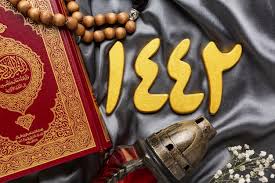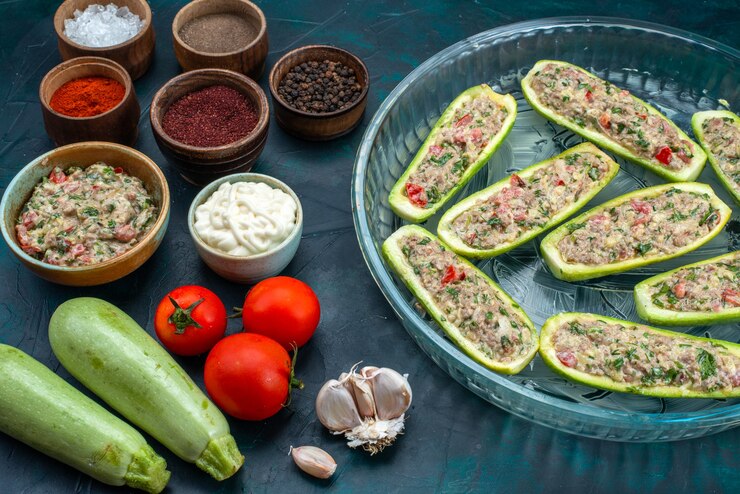Isabelle Farage: Emerging from a Shadow

In contemporary public life, many children of high-profile figures find themselves thrust into attention before they’re ready. Isabelle Farage is one such name that attracts interest—not merely because of her surname, but also because she appears to be quietly shaping a life of her own. Born in 2005, she is the daughter of Nigel Farage, whose political career has been controversial, visible, and often polarizing. But while her father has cast a long shadow, Isabelle’s trajectory suggests a person seeking her own identity, opportunities, and sense of purpose.
In this profile, I’ll outline what is known about Isabelle: her family roots, education, early career steps, public appearances, and possible future paths. At the same time, I will emphasize the uncertainties, gaps, and privacy she maintains. The goal isn’t to “expose” but to trace how a young adult balances legacy, expectation, and individuality.
Roots & Family Background
Parentage & Siblings
Isabelle was born in 2005 to Nigel Farage and Kirsten Mehr/Farage. LinkedIn UK+3MyHeritage+3Mating Press+3 Nigel Farage is a well-known (and frequently contested) figure in British politics—former leader of the UK Independence Party (UKIP), a prominent Brexit advocate, and later associated with Reform UK. Isabelle’s mother, Kirsten, has kept a relatively low public profile, often referenced as of German background. Mating Press+2MyHeritage+2
Isabelle has older siblings: an older sister, Victoria Farage, born around 2000, and two older half-brothers, Samuel and Thomas, from Nigel’s first marriage. MyHeritage+2South China Morning Post+2 The family structure includes a mix of full siblings and half-siblings, which adds layers to intra-family relationships and dynamics.
The media often refer to her by the nickname “Izzy” or variations thereof. South China Morning Post+2Ecomagazine+2
Living Environment & Upbringing
Though media interest often leans on political legacy, reports indicate that Isabelle spent much of her early life away from overt public spectacle. Some sources suggest she was raised in Oxted, Surrey, which is a suburban area outside London. Ecomagazine+1 Her schooling was in England at a private girls’ boarding school (Woldingham School), which hints at a fairly privileged, stable upbringing, at least in terms of educational resource access. Mating Press+2LinkedIn UK+2
Growing up with a father deeply involved in politics probably carried its own pressures—media scrutiny, public associations, and expectations. But Isabelle appears to have navigated that by maintaining as much private life as possible, stepping into public view only selectively.
Education & Early Development
Schooling & Skills
Isabelle attended Woldingham School, a girls’ boarding school in Surrey known for academic rigour and emphasis on extracurricular development. South China Morning Post+3LinkedIn UK+3Ecomagazine+3 During her school years, reports suggest she engaged in activities like Model United Nations, debate, and student clubs oriented toward international affairs and civic engagement. Ecomagazine+1 Those interests align with her later internship choices.
Completing her schooling in 2023, Isabelle then chose to take a “gap year” rather than going directly into university—a choice consistent with her accumulating varied real-world experience before committing to a specific path. Ecomagazine+1
Internships & Early Work
Her gap year (or intervening period post-school) appears to have been more than a pause: she actively sought roles that could expose her to political, social, and policy environments.
Among the internships she undertook:
- A placement in the UK House of Commons / Parliament (UK). Ecomagazine+1
- A stint in the U.S. House of Representatives, giving her direct exposure to American legislative structures. Ecomagazine+1
- A role with the Centre for Social Justice, a UK think tank focused on social policy, inequality, and community development. Ecomagazine+1
These placements align with a pattern: gaining exposure to governance, policy, social issues, and comparative political systems rather than merely pursuing high-visibility roles.
Parallel to or after her internships, Isabelle moved into a more standard employment role: she is listed on LinkedIn as a Customer Support Co-ordinator at Taylor Wimpey plc, a major housebuilding company in the UK (specifically, Taylor Wimpey South East). LinkedIn UK That role, in the private sector, might appear removed from politics, but importantly, it gives her operational experience, client interaction, and corporate exposure.
That she chose such a role suggests she is not rushing into politics or public office—but rather, building a foundation from which multiple future paths remain open.
Public Appearances, Media & Persona
Select Public Moments
Because she is not a career public figure, Isabelle’s appearances are limited but meaningful when they occur:
One notable event was during Nigel Farage’s participation in I’m a Celebrity… Get Me Out of Here! in 2023. Isabelle traveled to Australia to be with him, and media captured their emotional reunion. YouTube+2Ecomagazine+2 In interviews around that time, she publicly acknowledged her father was divisive but emphasized “he’s still dad to me.” Ecomagazine+2Mating Press+2
Though this appearance came in a media-saturated context, Isabelle handled it with composure. Unlike many celebrity children, she did not seize that moment for promotional advantage; she spoke, but gently, and retreated back to her quieter life.
Media Interest & Boundaries
Because of her family name, Isabelle is naturally a subject of media interest. But this coverage is often speculative, fragmentary, and sometimes sensational. Many details reported—about relationships, social media profiles, or future ambitions—are unverified or based on rumor. For example, tabloids have occasionally speculated about who she might date or her social circle. The Sun+2The Sun+2 But none of those speculations appear substantiated in credible sources.
Isabelle’s actual social media presence is minimal and controlled. Her Instagram account (@isa_farage) shows modest activity; she has followers, but the content is mostly personal snapshots rather than curated brand-building posts. Instagram+1 This approach suggests she prefers to maintain privacy over public campaigning of her life.
In short: she engages with public life selectively and cautiously.
Challenges & Advantages of Her Legacy
The Inherited Spotlight & Expectations
Carrying the surname “Farage” comes with significant baggage. Nigel Farage is a polarizing political figure, entrained in Brexit debates, immigration issues, and ideological divisions. That means Isabelle is never wholly free from association or expectation.
The challenge: external observers often see her through the lens of her father’s politics, asking whether she agrees, whether she will enter politics, whether she will reaffirm or reject aspects of his legacy.
But Isabelle seems to approach this with intentional distance: she does not overtly signal immediate political ambition, nor does she court media attention to assert a manifesto.
Access, Network & Resources
On the flip side, being part of a prominent political family does afford access—contacts, visibility, and possibly opportunities that would otherwise be harder to secure. Her internships and placements, especially in political institutions, may have been facilitated (at least indirectly) by familial networks, or at least by name recognition opening doors. That said, securing substantive roles (rather than token ones) still demands capability, diligence, and merit.
Thus, Isabelle’s journey is one of balancing inherited advantage with personal authenticity and competence.
Possible Future Directions & Speculations
While no public declaration has established Isabelle’s long-term goal, based on her background, experiences, and the choices she is making, one can imagine several plausible paths:
- Public Policy / Think Tanks / Advocacy
Her internships with political institutions and social justice organizations suggest she may be gravitating toward policy work—with an interest in social issues or governance reform. - Diplomacy / International Relations
Having exposure to both British and U.S. legislative environments, combined with a bicultural upbringing, she could pursue a diplomatic or global relations track. - Corporate / Private Sector with Civic Focus
Her role at Taylor Wimpey shows she is comfortable in the corporate sphere. She might aim to merge business acumen with social mission—housing, sustainability, urban planning, or community development are plausible arenas. - Media, Commentary, or Public Voice
As she matures, she might choose to articulate her ideas via writing, speaking, or analysis. But any such move would likely be deliberate, selective, and cautious, given her family context and desire for authenticity. - Politics (Eventually)
It’s possible she may run for public office or join a party—but, if she does, likely not prematurely. A gradual build of experience, credibility, and viewpoint unlinked from mere legacy might serve her well.
Whatever she chooses, her current pattern suggests she’s accumulating foundation stones—education, experience, self-knowledge—rather than launching prematurely into grand statements.
Reflections: Identity, Legacy & Agency
Isabelle Farage’s story so far is an interesting case in how a young person with a powerful family legacy can assert individual agency while managing external expectations.
- She is not hiding from her heritage, but she also does not succumb to it.
- She pursues relevant, plausible experience without overexposing herself.
- She shows maturity in refusing to rush into the limelight or take symbolic positions before being ready.
- She seems to prefer structure, competence, and discretion over spectacle and hype.
In many ways, the journey ahead for Isabelle is a balancing act: staying grounded, building integrity, and making choices that reflect her values rather than external pressure.
Closing Thoughts
There is no doubt that the name “Farage” carries weight, controversy, and preconceptions. But Isabelle, born in 2005, is still very young. Her decisions in this decade—about education, career, public voice, and personal boundaries—will likely define whether she is seen merely in her father’s shadow or as a voice in her own right.



















